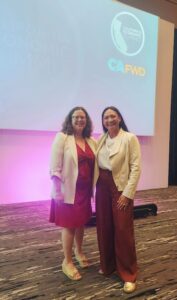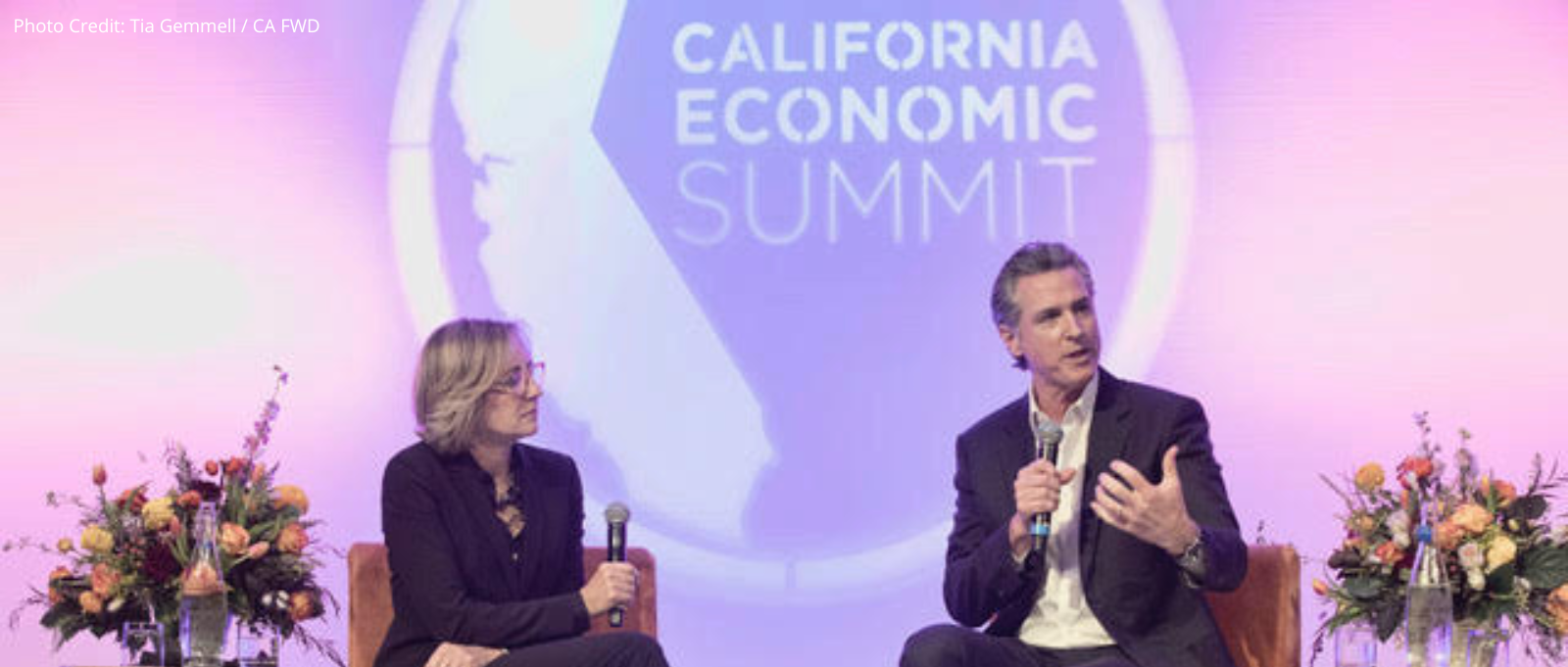December 11, 2024
Topic

Earlier this quarter, California Forward hosted the California Economic Summit, a three-day gathering of leaders from industry, community, and government agencies committed to building an inclusive and sustainable economy where all Californians can prosper. At this annual gathering, attendees discuss strategies to achieve triple-bottom-line solutions that balance economic growth with racial equity, geographic equity, and environmental sustainability. CivicWell CEO Bernadette Austin attended the gathering and came away with some insights that can guide CivicWell’s partners. Here is a short summary of key concepts:
Prosperity for All, not Just for Some
A top theme from the conference focused on equitable economic development. The opening keynote was delivered by Heather Boushey, the Chief Economist of the White House’s Investing in America
Cabinet. She highlighted a suite of investment strategies, including the Department of Labor’s worker first approach of investment to meet labor demand and the Department of Energy investing in innovation and commercialization of 37 different technologies. In the plenary “Electrify Everything,” panelists highlighted that the success of nearly 20 years of flat energy demand due to policy, regulatory, and rate structures to keep demand low is giving way to the need to double our nation’s energy capacity over the next 20 years. The various panelists shared examples of how to achieve this goal in a sustainable and equitable way. There was discussion of how energy infrastructure can serve as an economic driver, and importantly that jobs in the energy sector are largely local, place-based, high-quality, and unionized. Marin Clean Energy CEO Dawn Weisz highlighted how Community Choice Aggregation (CCA) reinvest in communities, like the Virtual Power Plant (VPP) project in Richmond. The panelists also referenced excellent resources, including the Boston Consulting Group’s report, “Unlocking California’s Climate Ambition,” and the Book Charging Forward: Lithium Valley, Electric Vehicles, and a Just Future by professors Chris Benner and Manuel Pastor.
Forward-Thinking Financing
It is well known that transportation is a significant contributor to carbon emissions. The panel on “Charging Forward: Strategies for a Sustainable, Resilient, Inclusive Energy Transition” cited that 43% of pollution comes from diesel and transportation sources. The panel also wisely noted that adequately preparing for California’s energy future requires not just technological innovation, but also social innovation to address barriers to deploying capital, adjusting the regulatory framework, adjusting consumer behavior, and addressing community benefits. The first plenary on “Funding a Sustainable Transportation Future” explored the current nexus between Cap and Trade funding and investment towards a sustainable future. However, panelists noted that the increase in fuel efficiency and expansion of electric vehicles has the potentially to jeopardize this as a solution. Diesel fuel tax revenue is anticipated to decline for the same reason. Research from the Mineta Institute at San Jose State University said that taken collectively, this greening of transportation could cost the state in $1 billions anticipated revenue by 2027, (link here). In the panel “Putting Regions at the Center: California Jobs First,” panelists call for state agencies to not take a top-down approach, but rather invest in the planning efforts that regions identify themselves. This future-focused approach can provide scaffolding for longer-term investment and an approach that can better leverage private sector partners.
Fundamentally, the emergent themes from this dynamic and timely conference align with CivicWell’s priorities, including cultivating cross-sector partnerships, replicating regional successes, promoting a triple-bottom-line approach to community investment, and facilitating dialogue between policymakers at the state level and implementers at the local level.





